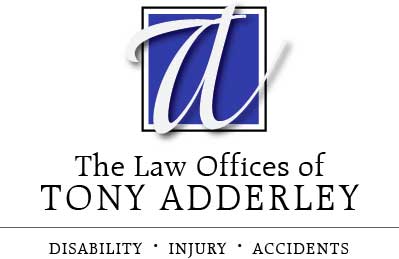Cross Examine
Cross examination of experts at hearing
Medical experts at Social Security hearings. Judges use medical experts at Social Security hearings to provide detailed assessments of the claimant's medical condition and to seek opinions on the claimant's ability to work. These experts have specialized knowledge of medical conditions and detailed knowledge of Social Security disability programs. This information helps to support the judge's decision on the claimant's disability eligibility.
Medical experts at Social Security hearings may include doctors, psychologists, psychiatrists, medical assessors, vocational experts, and other public health professionals. The roles of these medical experts vary according to the applicant's medical or psychological condition. Medical experts may provide an opinion on the claimant's current physical or mental condition, how it affects their ability to work, and what accommodations might help make a return to work possible. They may also provide testimony on the medical evidence and medical records submitted by the claimant, and may testify at the hearing.
Medical experts at Social Security hearings will routinely use the applicant's medical records, laboratory results, and other evidence to determine eligibility for certain social security benefits. They will also evaluate the applicant's condition in terms of its functional impact on their ability to work or perform other daily activities. This evaluation will help them reach a decision regarding the applicant's disability status and potential entitlement to benefits. Additionally, the medical experts may also weigh in on the potential medical improvement of the applicant's condition in the future.
Medical expert testimony is sometimes helpful to the claim. When it isn’t an attorney will cross examine to uncover the basis for their opinons.
Generally, medical experts at Social Security hearings evaluate the claimant's medical records and testimony in order to assess the claimant's current health status. The medical expert may also be asked to provide an opinion regarding the claimant's ability to perform certain physical activities or tasks, or to engage in work-related activities, based upon their medical findings. Ultimately, social security hearing officers must make their own assessments and decisions regarding a claimant's eligibility based upon all of the evidence presented.

Vocational experts at Social Security hearings. Judges use vocational experts at Social Security hearings to provide a more detailed and specific opinion on a claimant's past work and ability to work in the future. This evidence is particularly important for disability claims since it provides insight into whether a claimant is able to take part in substantial gainful activity due to a disability. Vocational experts typically provide evidence and testimony about labor market trends and job skills to help the judge determine whether or not a claimant meets the criteria for disability benefits.
Judges use vocational experts at Social Security hearings to assess whether claimants are capable of engaging in gainful employment activities and to determine the extent of their disability. Vocational experts provide an evaluation of what kind of work a claimant could do given their education and work background, including how much they could reasonably earn on the open market. This information can be used by the judge to decide whether to grant benefits to the claimant.
Vocational experts at Social Security disability hearings provide evidence-based assessments of an individual’s residual functional capacity (RFC) and the ability to gain and maintain competitive employment. The vocational expert's testimony can help the administrative law judge evaluate the claimant's disability claim. The vocational expert typically evaluates the claimant's experience and education, relevant labor market data, and generic occupational qualifications such as age, education, work experience, language skills, and environmental restrictions. The vocational expert’s duties may also include developing a job or transferable skills analysis; providing estimates of the number of jobs available to the claimant within the local or regional economy; and offering opinions regarding the likelihood of the claimant being able to obtain and sustain such jobs.
How do lawyers cross examine experts at Social Security hearings?
A lawyer may use a variety of techniques to cross-examine experts at a Social Security hearing. The purpose of cross-examination is for the lawyer to test the expert's qualifications, discover any inconsistencies in their testimony, and highlight any issues related to the applicant's qualifications and the return to work process.
Questions that a lawyer may ask to effectively cross-examine a vocational expert include:
-What are your qualifications and experience in the vocational field?
-What information did you consider in preparing your opinion?
-Do you have any information to support the conclusion you arrived at?
-Are you familiar with the labor market in the region where the claimant lives?
-Do you believe that a parameter over or under-exaggerates the vocational factor?
-Are there any discrepancies between the facts presented to you and any other information you've researched?
-Have you considered any special circumstances or impairments that could limit the Claimant's ability to return to work?
-Are you aware of any considerations that could work in the claimant's favor and lead to a successful return to work?
-Are you aware of any recent developments or changes in applicable law that you didn't consider in your opinion?
Lawyers may cross-examine a vocational expert by exploring the qualifications and experience of the expert, by asking questions to test their interpretation of Social Security regulations and requirements, by seeking to impeach the expert's credibility, by asking questions about how their opinions may be impacted by other evidence in the case, and by asking questions about the vocational aspects of the claimant's role in the workplace. Furthermore, lawyers may challenge the vocational expert's testimony by entering evidence from medical sources or independent vocational sources. Finally, they may ask the vocational expert to discuss hypothetical situations that may come up during the hearing.

